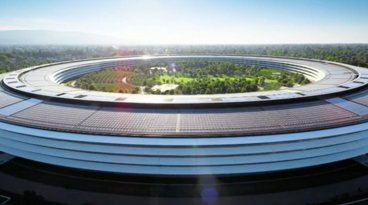Just days after Apple chief executive Steve Jobs turned in nearly 4.6 million company shares to pay taxes on a total of 10 million that had vested, several other members of the Apple executive team made similar moves on stock owed to them by the company.
All the shares in question were part of 2.4 million restricted stock units that Apple had previously granted to its company executives. Like Jobs' 10 million shares, these also vested this month.
Senior Vice President and Chief Financial Officer, Peter Oppenheimer, Senior Vice President Software Engineering, Bertrand Serlet, and Senior Vice President Worldwide Product Marketing, Philip W. Schiller, each forfeited 114,375 of the 250,000 shares owed to them in order to satisfy tax obligations.
Similarly, Senior Vice President iPod Division, Jon Rubinstein, Senior Vice President Applications, Sina Tamaddon, and Senior Vice President Retail, Ron Johnson, were also due to receive 250,000 shares. However, their tax obligations were a bit less burdensome, requiring they only turn in 112,707 of their shares to pay the bills.
Senior Vice President and General Counsel, Nancy R. Heinen, and Chief Software Technology Officer, Avadis "Avie" Tevanian, each saw 200,000 shares vest and exchanged 91,500 to pay the applicable taxes.
The only member of Apple's executive team who did not elect to net-share settle his restricted shares was Chief Operating Officer, Timothy D. Cook — the man behind the Cupertino, Calif.-based company's daily operations.
Instead, Cook choose to sell the 300,000 shares owed to him in a series of transactions on the open market. The sale, which occurred at prices between $59.08 and $60.87 a share, yielded the exec about $18 million.
All transactions took place on March 24, 2006.
 Kasper Jade
Kasper Jade







 Wesley Hilliard
Wesley Hilliard

 Marko Zivkovic
Marko Zivkovic
 Christine McKee
Christine McKee

 Malcolm Owen
Malcolm Owen
 Amber Neely
Amber Neely










9 Comments
Why the big sell off? Market reseach firms continue to place AAPL at a target price around $100. Why would they be selling now when the stock is at a rock bottom price?
They didn't choose to sell at rock bottom. The sales would have been scheduled for a long time - they were just very unlucky that it coincided with AAPL hitting rock bottom!
The sales of all those execs' shares probably contributed materially to AAPL's decline.
Uncle Ben, perfect results everytime! (don't ask)
They didn't choose to sell at rock bottom. The sales would have been scheduled for a long time - they were just very unlucky that it coincided with AAPL hitting rock bottom!
The sales of all those execs' shares probably contributed materially to AAPL's decline.
Not to mention that scheduling the sale of their stock before the big April announcement, which will send the stock higher, instead of afterwards avoids the appearance of insider trading.
They didn't choose to sell at rock bottom. The sales would have been scheduled for a long time - they were just very unlucky that it coincided with AAPL hitting rock bottom!
Ummm...just FYI...as far as "rock bottom" goes...you are off by about $50 (split-adjusted pricing).